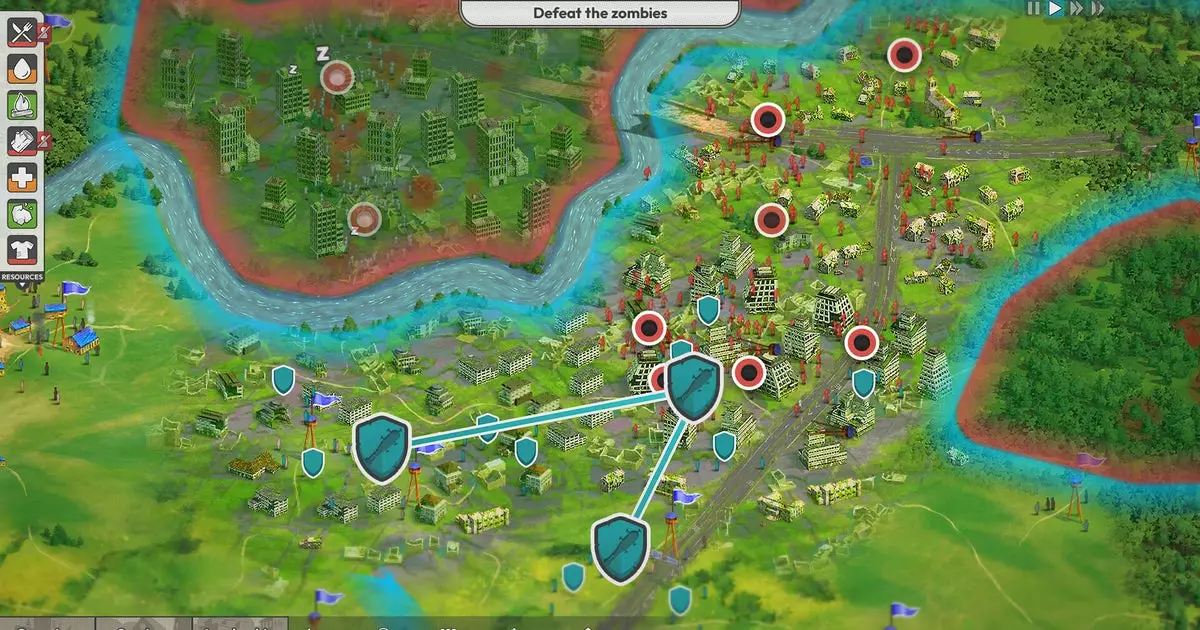The contemporary gaming landscape has a unique ability to reflect societal anxieties and aspirations. Ndemic Creations, perhaps best known for their unsettling strategy simulator, Plague Inc, has ventured into new territory with their upcoming title, After Inc: Revival. In this article, we will evaluate the implications of this new release, how it compares to its predecessor, and the thematic elements woven into its gameplay, particularly in the context of a world grappling with the fallout from a global pandemic.
From Catastrophe to Reconstruction
In Plague Inc, players embraced the role of a disease, inundating the globe with infection and chaos. The game’s sharp ascent in popularity during the COVID-19 pandemic underscores how individuals sought to process their fears and uncertainties through the lens of gameplay. Fast forward to After Inc: Revival, where players are now tasked with the daunting challenge of rebuilding civilization in a post-apocalyptic setting overrun by zombified threats. The shift from destruction to creation presents an intriguing narrative arc, allowing players to cultivate life amidst the ruins of a once-thriving world, notably a reimagined United Kingdom.
This transition speaks volumes about our collective mindset. The pandemic has altered realities, pushing societies to reconsider resilience, community, and the very concept of civilization. However, it also raises critical questions: Can we truly reconstruct a society after devastation? Will the underlying issues that led to collapse, such as inequality and mistrust in authority, resurface in this rebuilt world? After Inc posits a scenario where these dynamics can be explored.
One of the standout features of After Inc: Revival is the emphasis on decision-making within the realm of survival. Players are confronted with challenging choices, such as determining the role of children in a recovering society and whether pets should serve as companions or sources of sustenance. This moral ambiguity resonates deeply, suggesting a reflective commentary on the difficult trade-offs societies face in times of crisis. The game ventures into the philosophical territory once trodden by titles like Frostpunk, asking players to navigate governance structures—be it democratic action or authoritarian measures—as they strive to pen the future of humanity.
Yet, this intricate web of choices raises concerns about representation and sensitivity. Does the game risk trivializing the real suffering associated with the pandemic? The emphasis on “light-hearted” decision-making while juxtaposing serious societal issues can come off as tone-deaf. The use of a whimsical 4X city-building model to address such profound themes requires careful balance to avoid reinforcing narratives that gloss over the nuances of human hardship.
With After Inc’s portrayal of a post-pandemic world, players might find themselves reflecting not only on the gameplay mechanics but also on their own experiences during the pandemic. This immersion calls into question whether the game serves as a form of escapism or if it intentionally evokes introspection about society’s vulnerabilities. The developers have acknowledged the criticism surrounding the timing and thematic choices, humorously stating that “After Inc: Revival is not based on any real-world situation.” However, poking fun at the notion of a zombie apocalypse juxtaposes the contemporary struggles our world faces, possibly diminishing the weight of real-world issues.
Moreover, the game’s structure, featuring multiple settlement leaders with diverse abilities and a narrative shaped by player decisions, fosters an engaging environment. This multifaceted approach offers replayability and enriches the storytelling experience, allowing players to deeply explore the ramifications of their choices in a way that could provide insight into societal rebuilding post-crisis.
With its scheduled early access release in 2025, there is ample opportunity for Ndemic to refine After Inc: Revival based on player feedback. The promise of additional leaders, expanded campaigns, and new crisis scenarios highlights a commitment to creating a robust gameplay experience. However, as they develop this title further, careful navigation of the game’s themes and their resonance with real-world events will be essential.
After Inc: Revival presents an exciting but delicate exploration of society’s potential for renewal following devastation. The shift from chaos to reconstruction allows for a nuanced understanding of community resilience, yet it challenges developers to strike the right balance between entertainment and sensitivity to real-world issues. As the gameplay unfolds, players may not only engage with the fun of managing a post-apocalyptic settlement but also confront deeper reflections about human coexistence following calamity.


Leave a Reply